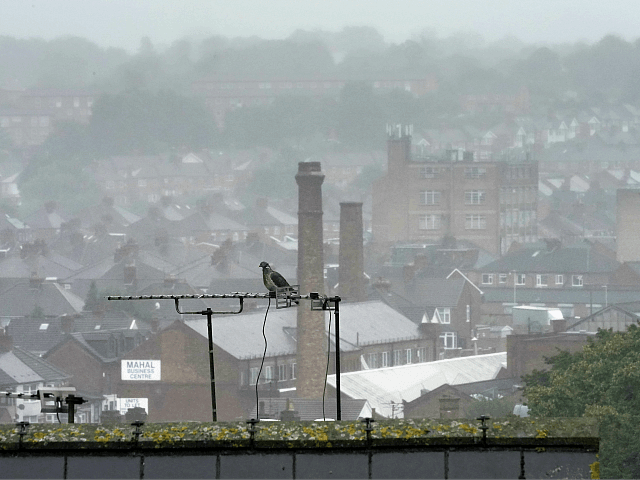British police ignored sweatshops full of mostly South Asian heritage workers in the British fashion industry over fears that they would be called racist, according to reports, mirroring decades of a similar lack of action taken by police in confronting the scourge of mostly Muslim grooming gangs.
Home Secretary Priti Patel has suggested that “cultural sensitivities” led police and other government agencies to ignore the exploitation of illegal workers in textile factories and warehouses in Leicester, similar to how police overlooked grooming gang rapists operating in cities like Rotherham and Rochdale.
Last week, an investigation found that workers in a Leicester factory for the British fashion company Boohoo were being paid as little as £3.50 an hour, compared to the national minimum wage for adults over 25 of £8.72 an hour.
The report has spurred the Home Secretary to consider crafting new legislation on modern slavery, as she believes the current set of laws are “not fit for purpose”.
“This scandal has been hiding in plain sight and there are concerns cultural sensibilities could be in part to blame for why these appalling working practices haven’t been properly investigated,” a source close to Ms Patel told The Times.
The communities secretary, Robert Jenrick, has also launched an investigation into the matter, which could see the government taking over control of Leicester’s city council, which has been accused of being negligent in addressing slave labour in the fashion industry.
The police contact for Leicester’s Sikh community, Raj Mann said: “The local authorities have known these sweatshops exist for decades but they’ve been loath to do anything about it for fear of being accused of picking on immigrant or refugee communities, as a lot of the exploited workers are of Indian background.
“Within the Asian community people generally turn a blind eye to workers in the community who are on less than the minimum wage. They see it as being better than earning nothing at all,” he said, adding that factory owners in the city often share intelligence about “cheap workers” as well as information on upcoming police inspections or raids.
The issue of modern slavery has been long-standing in the Leicester textile industry, with a 2015 study from the University of Leicester finding that the practice of paying workers below the minimum wage to be “endemic” in the city.
Claudia Webbe, the Labour MP for Leicester East said: “It’s such an open secret about what’s going on in Leicester that no one took any notice when I raised the issue during my maiden speech in March.”
Conservative MP for North West Leicestershire, Andrew Bridgen, said that “slavery is not modern, but is unfortunately still with us and uncomfortably close to home.”
Mr Bridgen, who has been raising the issue with the government over the past year, said in January that the working conditions in the city’s factories are “Leicester’s dirty secret”.
“These illegal businesses are not only keeping their workers in miserable conditions, they’re also undermining the marketplace for legitimate businesses to make a living in a very difficult market. I’ve seen the buildings where these workers are and it is shocking: the buildings are condemned – if there was a fire there then hundreds would die, and this is Britain in 2020. It’s a national shame.”
Police and other public officials overlooking instances of modern slavery out of fear of appearing racist is strikingly similar to how law enforcement agencies allowed child rapist grooming gangs to operate for decades in cities across the North and Midlands of England.
In January, a report commissioned by the Mayor of Greater Manchester found that the police in the city turned a blind eye to the sexual violence committed by an “Asian” grooming gang so as to not appear to be racist.
An unnamed Greater Manchester Police detective constable said that police were told to look for “other ethnicities” as a grooming gang of 97 men from South Asian backgrounds were allowed to roam free in the city, abusing at least 57 young girls in the process.
“What had a massive input was the offending target group were predominantly Asian males and we were told to try and get other ethnicities,” said the detective constable.
A similar report from Rotherham found that police were reluctant to crack down on grooming gangs for fear of sparking “racial tensions”.
While police across the north of England and the Midlands had previously denied that race played any role in permitting the gangs to operate, a report from the Independent Office for Police Conduct (IOPC) found that a local chief inspector told the father of a missing girl that the city “would erupt” if it was revealed that South Asian grooming gangs were sexually targeting young white girls.
Follow Kurt on Twitter at @KurtZindulka

COMMENTS
Please let us know if you're having issues with commenting.